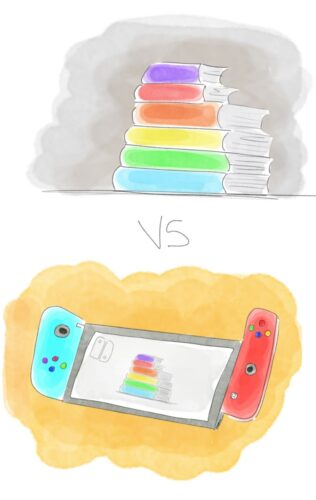Educators: Don’t shame gamers, leverage their skills
By River Bradley
riverbradleyca@gmail.com
Even amidst a pandemic-fueled boom in video gaming, social stigma still surrounds those who play them. But it doesn’t have to. The growing popularity of video games gives educators even more reason to harness the benefits of video games to provide tailored support to their students. Let’s take advantage of the opportunity to throw away the shame and learn from gamers instead of mocking them.
Being a gamer doesn’t come free of social cost. Long-held beliefs about the negative effects of gaming persist, even though the commonly held myth that playing violent video games is linked to real-life violent behavior was disproven in 2014. The World Health Organization added “gaming disorder” to the International Classification of Diseases in 2018, but in March 2020, they supported an initiative to “encourage people on how to entertain themselves and also practice physical distancing,” according to this article in USA Today.
Gaming culture has evolved. It still has a long way to go to become truly inclusive, but increasingly, creators are releasing games that depart from classic sexist tropes, like the action role-playing game Horizon Zero Dawn or the pastoral, community-oriented Animal Crossing. And it turns out that, regardless of the content, video games offer learning benefits that cannot be ignored.
Video games “may strengthen a range of cognitive skills such as spatial navigation, reasoning, memory and perception,” a review from 2014 found. Add to that better visual attention, attentional control, (“the ability to flexibly switch attention as time demands,”) and problem-solving, and it becomes clear: gamers make good learners. Forbes outlined four lessons that educators can take from the ways game designers keep players engaged: Give students agency over their learning process, provide step-by-step increases in difficulty, offer feedback quickly and steadily, and provide students opportunities to connect with and learn from their peers. Each of these methods offers invaluable avenues to master the material at hand.

Specific study strategies have marked similarities with gamers’ approaches towards improving their playing. Mental health researcher Dr. Natalie Coyle offers some links between the two. One example is how gamers give advice to each other generously, which reinforces learning through a process called elaborative interrogation. Coyle says “elaborative interrogation involves testing ourselves on the material and explaining why something may be true.” Educators can apply this strategy to help students bolster their learning and build community in the classroom.
Studying, just like any other skill, can be sharpened through repetition. According to Coyle, “Distributed practice”— spacing out studying — boosts memory consolidation, particularly with sleep between sessions. Learning from failure is also something gamers do well, and Coyle recommends teachers encourage their students to shift their attitudes to see feedback as a learning opportunity. Without input, we humans won’t know what we’re doing wrong or right, and without the opportunity to integrate new knowledge and try again, how does learning happen?
These commonalities notwithstanding, there are major differences between gaming and school work. For example, gaming allows the player to retry a level as many times as it takes- it’s rare to be able to revise an essay or retake a test to get a better grade. Instructors might reconsider tweaking their grading practices and class structures to offer more opportunities for improvement.
The benefits of playing video games are unfortunately accompanied by significant downsides. The American Academy of Child & Adolescent Psychiatry identified drawbacks such as time away from family, school work, reading, exercise, and sleep. Many gamers lack the skills to balance gaming with other aspects of their lives.
These problems are not insurmountable, however. Research has shown it is possible for gamers to improve their time management. City College’s website provides some tips and resources for “succeeding as a remote learner,” but courses in executive functioning to develop skills like time management and organization could greatly benefit students.
We can reduce gamers’ shame by translating their skills to a classroom and study setting.
Why not use a video game to illustrate a concept or dive into an idea as we do with films? Use gamified tools and educational games in the classroom to engage students’ interests and give them opportunities to utilize their abilities. Incorporating the lessons and benefits of gaming may present hurdles for instructors accustomed to traditional teaching methods, but jumping those hurdles could prove to be a valuable learning opportunity in itself.
